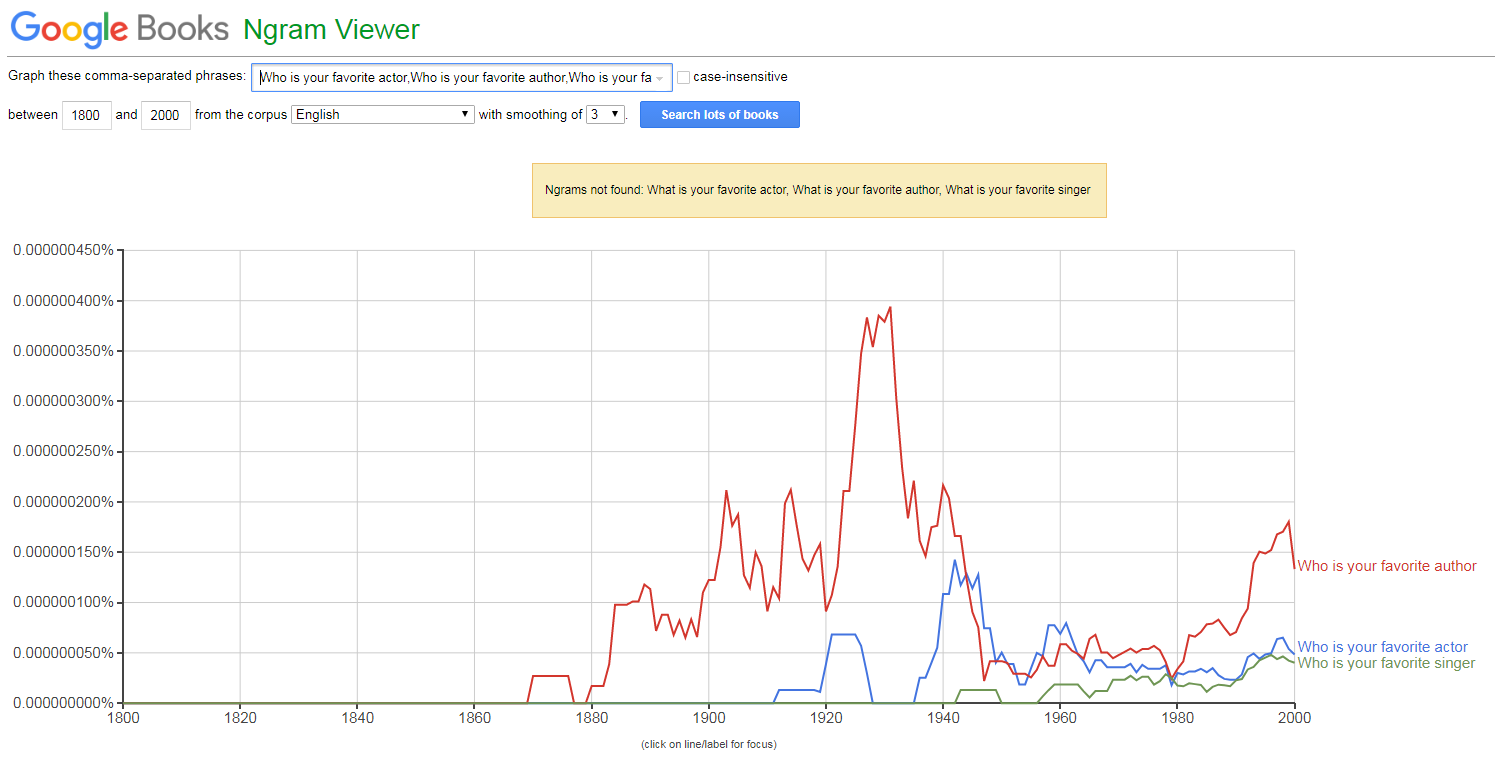It would be unremarkable in casual, extemporaneous speech, when we sometimes let
our mouths get ahead of our brains—I start out to ask "what's your favorite movie?" but then shift gears halfway through a sentence and say "actor" instead of "movie", or I've been asking a series of questions about favorites that are things and forget to switch my sentence structure when I get to a question about people. Some very casual writing, like online comments, can also be like that: the fingers get ahead of the brain (or auto-correct misinterprets something), and the question gets "published" to the internet, or the email or text is sent, before the brain notices the error and makes a correction.
On the other hand, I would be surprised to hear or see it in careful speech or writing. And, in fact, if we use Google Ngram1 to search published works, we find that "What is your favorite [person]" is so rare as not to show up in results at all, whereas "Who is your favorite" actor/author/singer all appear:

This corpus includes novels and plays, so as of 2000 "What is your favorite" actor/author/singer was not standard enough to make it even into dialogue.
1This version of Google Ngram searches Google Books circa 2009, a corpus primarily composed at that time of books held in the University of Michigan's library, and thus is fairly representative of US publishing standards over time (up to the year 2000). Standard caveats of Ngram usage apply.


What's your favorite movie?thenWhat's your favorite band or singer or type of music?(Which is clumsy in itself) thenWhat's your favorite actor, actress?so safe to say no one proofread the author's book. All perfectly acceptable in speech, it's easier to get away with slip-ups, but not in writing.What is your favorite actor. However, if the speaker is non-native, their accent thick, and their speech peppered with hesitation and incoherencies then the inaccuracies become far more noticeable.